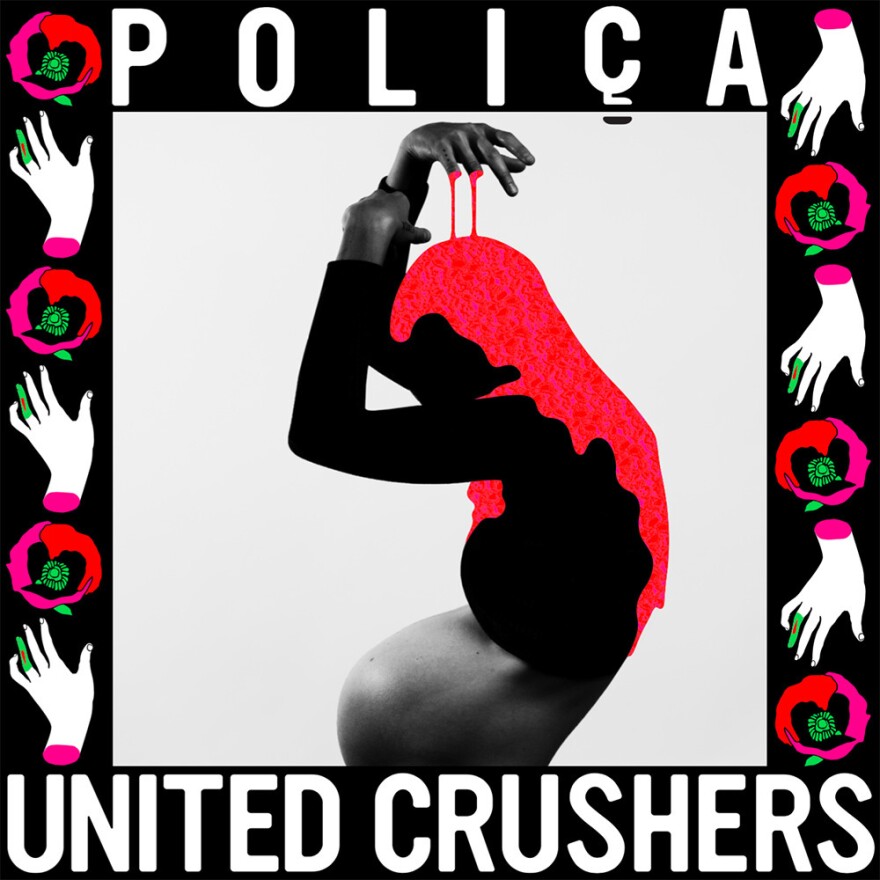Note: NPR's First Listen audio comes down after the album is released. However, you can still listen with the Spotify playlist at the bottom of the page.

Poliça's third album opens in a downcast mood, with a mother's murky voice telling a newborn baby that, in no uncertain terms, "It's all s***." An excremental worldview rarely makes for rousing anthems — much less repetition of that worldview as a refrain — but there's a spirit of defiance in that clear, forthright message that carries through United Crushers and somehow lifts it all up.
"I got mine / I'll be fine," the mother continues in "Summer Please," mocking the ways many of us callously or obliviously bumble through the world. The music behind her follows suit at the start, pitched down electronically to a sort of despondent drawl, until about halfway through it breaks open and begins to buck to a feisty dance beat. It comes out of nowhere, and the tension activated — between charged, sometimes dark lyrical content and antic, dancey energy — remains for the rest of an album that plays with crosscurrents between the two. "Lime Habit" shifts the album-opener into brighter territory, with singer Channy Leaneagh's voice sounding clear yet ethereal; inviting synth curlicues wrap around rhythms meted out with house music's lightness of touch. "Wedding" turns heavier and more concussive, with bashing, enervated beats beneath lyrics in line with Poliça's claim that United Crushers was conceived as "modern protest music," crafted in the midst of rioting in its hometown of Minneapolis last fall. "Trigger after trigger, we don't even know we're sick," Leaneagh sings, perhaps in mind of the incident that sparked it all. "Leaders, we have none."
Poliça's sound in service of such a message and mood is roiling, hands-on electronic music that hews between dance fare that could catalyze a club and slower new-wave sounds. "Top Coat" leans toward the latter, with synth lines that creep out of hidden corners, while "Baby Sucks" finds a notably different funky stride. Somewhere in the midst of such extremes lies a connective key to music cast out in lots of contrasting directions, with a sense of purging and purpose behind it all.
Copyright 2022 NPR. To see more, visit https://www.npr.org.


